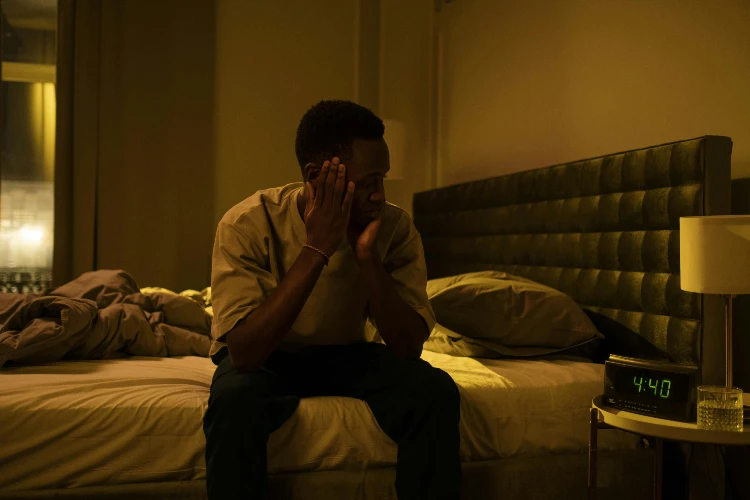If you’ve ever found yourself searching for “opiate withdrawal insomnia,” you’re not alone in this challenging journey. Opiate withdrawal can bring a whirlwind of symptoms, and insomnia is often one of the most frustrating aspects of the process. It’s like trying to find a cozy blanket on a cold winter night—just when you think you’re getting comfortable, something interrupts your peace. But fear not! In this blog, we’ll explore the ins and outs of opiate withdrawal insomnia, why it happens, and how you can find relief.
Let’s get started on this journey to better sleep. Remember, seeking professional help can make all the difference, and our dedicated psychiatric mental health nurse practitioners are here to support you. You can easily book an appointment through our client portal at [CLIENT PORTAL] when you’re ready.
Table of Contents

1. Understanding Opiate Withdrawal Insomnia: What’s Happening?
Opiate withdrawal is a process that occurs when someone who has been using opiates—like prescription painkillers or heroin—suddenly reduces or stops their intake. While opiates can provide relief from pain, they can also lead to physical dependence, meaning your body gets used to having the substance. When you stop taking it, your body has to readjust, which can lead to a whole host of uncomfortable symptoms.
Among these symptoms, insomnia can be particularly vexing. You might find yourself lying in bed, staring at the ceiling, your mind racing with thoughts, or maybe even experiencing restlessness. This isn’t just your imagination; it’s your body reacting to the absence of the drug it has come to rely on.
Why Does Opiate Withdrawal Cause Insomnia?
When you stop using opiates, your brain chemistry can get thrown out of whack. Opiates bind to receptors in your brain that are responsible for feelings of pleasure and pain relief, but they also affect your sleep cycles. During withdrawal, you might experience an imbalance of neurotransmitters that regulate sleep, such as serotonin and dopamine. This disruption can lead to difficulty falling asleep, staying asleep, or experiencing restorative sleep.
In addition to the chemical imbalances, psychological factors also come into play. Anxiety and cravings can keep your mind alert, making it hard to drift off to sleep. It’s like your brain is throwing a wild party, and you’re the only one not invited!
2. Coping Strategies for Opiate Withdrawal Insomnia
Now that we’ve laid the groundwork, let’s look at some effective strategies for dealing with opiate withdrawal insomnia. Remember, what works for one person may not work for another, so it’s essential to find a combination of techniques that suits you best.
1. Create a Sleep-Friendly Environment
First things first: your sleeping space should feel like a sanctuary. Dim the lights, keep the room cool, and eliminate noise—if your neighbor’s dog is barking, consider earplugs or a white noise machine. Having a comfortable mattress and pillows can also work wonders. You want your bed to be a cozy nest where you can eventually find some peace.
2. Establish a Relaxing Routine
Just like a child benefits from a bedtime routine, adults can also find solace in winding down before sleep. Try activities that promote relaxation, such as reading a book, meditating, or taking a warm bath. Avoid screens for at least an hour before bed, as the blue light can trick your brain into thinking it’s still daytime. Instead, let your mind and body ease into relaxation mode, signaling that it’s time for sleep.
3. Mindfulness and Relaxation Techniques
Practicing mindfulness can be incredibly beneficial when battling insomnia. Techniques like deep breathing, progressive muscle relaxation, or even gentle yoga can help calm your racing mind. You might also consider guided meditations designed for sleep—they’re like a lullaby for your brain!
4. Consider Over-the-Counter Sleep Aids
While it’s always best to consult a healthcare professional before trying any medication, some over-the-counter sleep aids or natural remedies like melatonin can offer temporary relief from insomnia. Just remember to use them sparingly, as they’re not a long-term solution.
3. When to Seek Professional Help
If you find that your insomnia persists despite trying various strategies, or if it significantly affects your daily life, it’s time to reach out for professional help. Our reliable psychiatric mental health nurse practitioners can provide valuable support during this challenging time. They can help you explore additional treatment options, including therapy and medication, tailored to your unique situation.
Don’t hesitate to book an appointment through our client portal at [insert portal link here]. Remember, you don’t have to navigate this journey alone; there are trained professionals ready to help you find your way.
A Final Note on Your Journey
Opiate withdrawal insomnia can be a difficult experience, but with the right strategies and support, you can reclaim restful nights and a more balanced life. While it may feel overwhelming, remember that recovery is a journey, not a race. Taking it one day at a time and implementing some of the tips we discussed can help ease your transition.
So, if you’re finding yourself stuck in the cycle of sleepless nights during opiate withdrawal, take heart! There’s hope on the horizon, and you have the tools to navigate through this. Keep looking forward, and don’t hesitate to reach out for help when you need it.
In the end, restful sleep is not just a dream; it can be a reality. And when you’re ready to take that step toward healing, remember we’re here for you. Book your appointment through our client portal at [REQUEST APPOINTMENT] and let’s get you started on the path to a brighter, more restful future. Feel free to visit our website at purehavenpsy.com to know all services and other conditions we treat. Sweet dreams await!
